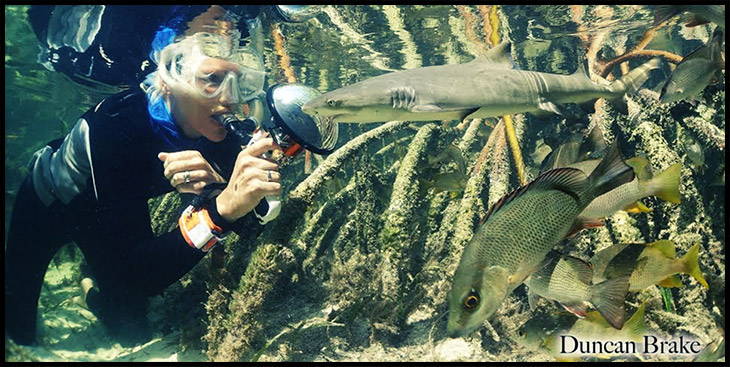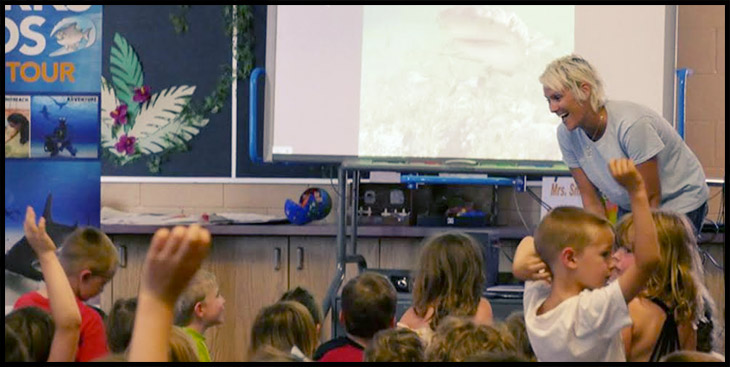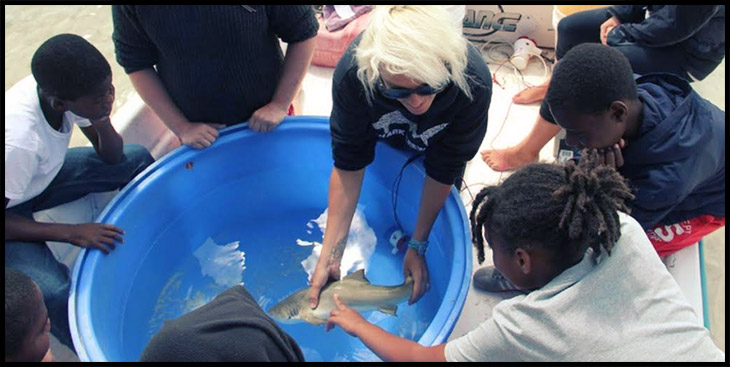We’d like to introduce you to an amazing shark advocate and marine educator, Jillian Morris. We were first drawn to her photography online and have since closely followed her amazing work – do check out all the cool stuff she’s been doing. She wears many hats. She’s a free-diver, SCUBA instructor, photographer, educator, outreach coordinator, rebreather diver, videographer, writer, and marine biologist/ocean advocate.

Being diverse in your skill-set is really part of what makes someone successful as a sharkologist these days. To help you learn more about what Jillian does, we asked her these questions.
If you were a shark, what would you be.
Great hammerhead!
Could you summarize what you do for research?
I am no longer actively doing research, but I am working daily to teach students about sharks, shark science and why shark science is so important for conservation.
What does a typical field day look like?
My typical day is either diving with sharks to photograph and film them or teaching students about sharks through the nonprofit I started, called Sharks4Kids. I visit schools in person, do Skype lesson and also team up with the Bimini Shark lab for monthly shark science Google Hangouts.

What inspired you to start doing this?
I saw my first shark while snorkeling when I was 8 years old and I was hooked, literally. I knew I wanted to work with them and as I got older my resolve to educate people about them and to be an advocate for them has only strengthened. Most of my adult life has revolved around sharks from research to photographing and filming these incredible animals.
Why do you think it’s important?
Education is key in changing the way people think. I hope my work inspires people to speak up, knowing they can make a difference. Sometimes people just need the correct information in order to make better and more responsible choices for not only sharks, but also the oceans. Science creates the data needed to get better laws and enforcement put in place and the general public needs to know about the science and why it is happening.
What is the hardest thing about doing this?
Seeing sharks killed for sport or just because people don’t want them in a certain area is infuriating and heartbreaking. Seeing a dead hammerhead strung up as a trophy is gut wrenching, especially when I cherish every moment I have with this endangered species. Every day is a new challenge, but we all can do something and I hope, in some small way, I am doing my part to save sharks.
What is the most rewarding thing about it?
I love getting posters from students saying “Save the Sharks,” or “Stop Killing Sharks,” written in crayon with a drawing. It gives me hope and reminds me why I am doing this.

What if others want to help in shark conservation – how can they help?
Choose sustainable seafood, do not buy shark fin soup, do not support businesses that sell shark fin soup or shark products, support positive shark ecotourism, read a shark book to students at a school or library, do a beach clean up, volunteer for a local conservation organization…etc. Simple acts each day that really can make a difference.
Finally, do you have any advice for a young student wanting to study something like this? What would you tell them?
Experience makes a huge difference in the very competitive world of shark science and conservation. Check out places like Bimini Biological Field Station, South African Shark Conservancy, Mote Marine Lab and the Island School/Cape Eleuthera Institute for volunteer and internship options.
More About Jillian Morris
Check out her Sharks4Kids site and her amazing underwater photography!
































































































